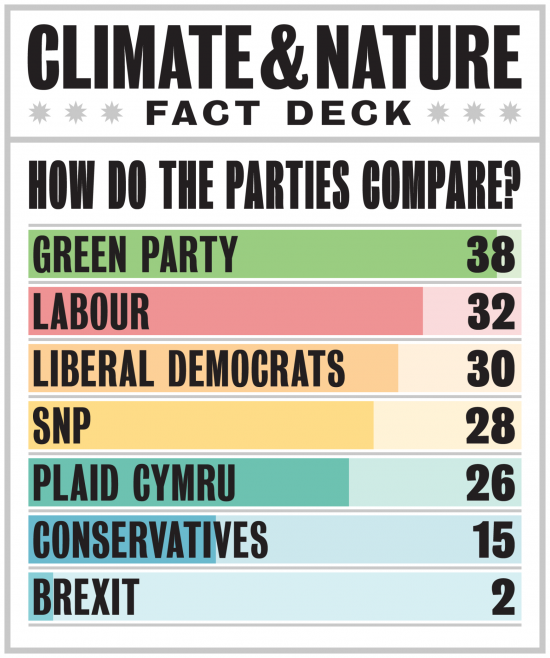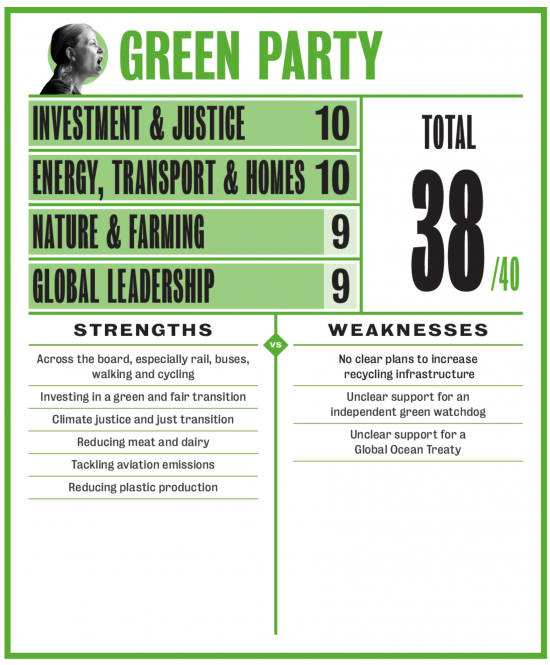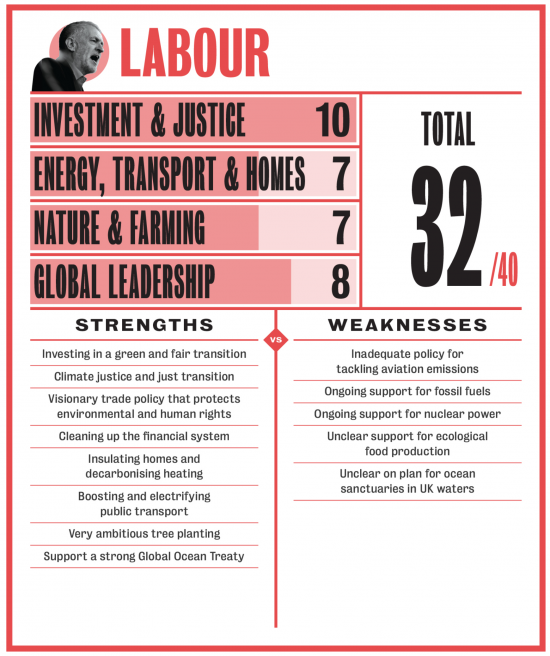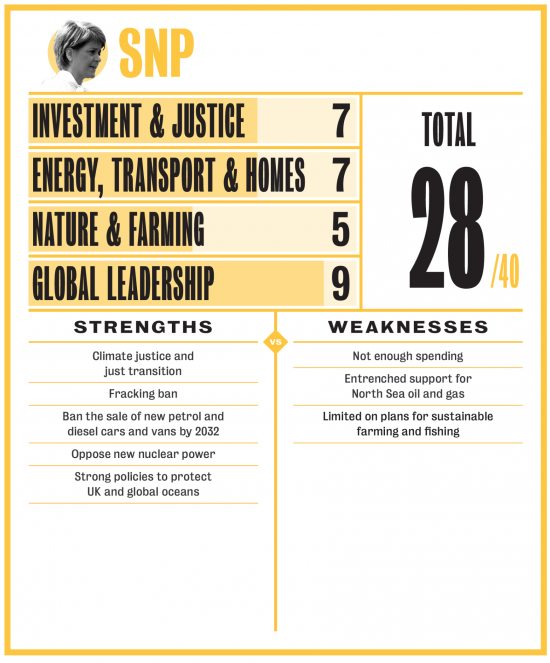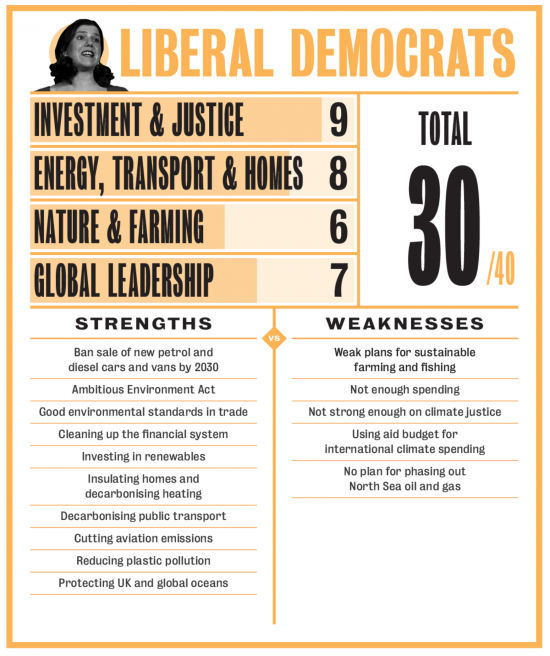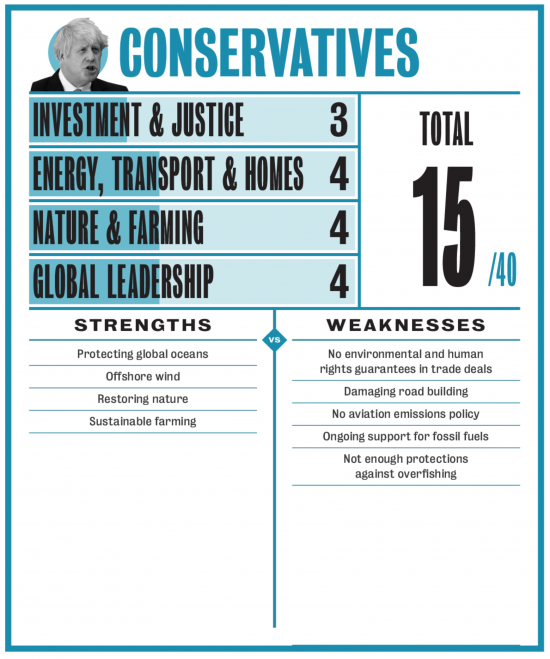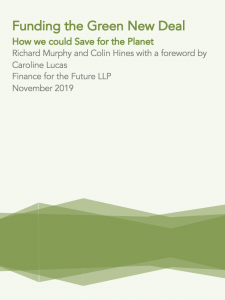Today
two very important inter-governmental meetings start in Madrid and near London (Watford)
respectively. The former is the latest of a long running series of the
Conference of Parties (COP 25) to the 1992 United Nations Framework
Convention on Climate Change, so far ratified by 185 countries, but from which
the United States has controversially
withdrawn under the instructions of US
President Donald Trump(“Climate crisis: what is COP and can it save the world?”, Guardian, 2 December 2019; www.theguardian.com/news/2019/dec/02/climate-crisis-what-is-cop-and-can-it-save-the-world).
On the eve of the NATO meeting, its Secretary General
Jens Stoltenberg argued on the Marr Programme on BBC television that the world
would not be safer if NATO members got rid of their nuclear arsenals. This
followed repeated assertions by Scotland First Minister, Minister Nicola Sturgeon, said she
would never use nuclear weapons and
called once more for the "immoral" Trident nuclear system, based
on the Clyde, to be scrapped.
Mr
Stoltenberg, who was formerly the Norwegian prime minister, also added:"Nato's goal is a world without nuclear weapons but we have to arrive
there through viable, balanced nuclear arms control and disarmament. The world
will not be safer if Nato got rid of all its nuclear weapons while countries
like Russia, China, North Korea and other countries maintain their nuclear
weapons…So yes, we would like to see a world without nuclear weapons but as
long as there are nuclear weapons, Nato will remain a nuclear alliance."
António
Guterrez, the United Nations secretary general, said before the COP 26 meeting
opened: “The technologies that are necessary to make this possible are already
available. Signals of hope are multiplying. Public opinion is waking up
everywhere. Young people are showing remarkable leadership and mobilisation.
[But we need] political will to put a price on carbon, political will to stop
subsidies on fossil fuels [and start] taxing pollution.: adding “In the crucial
12 months ahead, it is essential that we secure more ambitious national
commitments – particularly from the main emitters – to immediately start
reducing greenhouse gas emissions at a pace consistent to reaching carbon
neutrality by 2050.”
Lord
Stern of Brentford, one of the world’s leading climate economists, said: “It’s
very important that this COP is not just tidying up, but starting [the process]
of the next one. It’s positive that finance ministers and central bank
governors will come this year, and countries like the EU and China need to show
leadership.”
Here
are some highlights:
“This
is the third time during a general election campaign that we have witnessed a
horrific terrorist attack on the people of our country and, it seems clear, on
our democratic process itself.
At
times like this we all feel hurt by this appalling crime. And we feel anger, that it was carried out on our streets, in the
heart of our community….No government can prevent every attack. No one would
believe any political leader who said they could. But the government can act to
make such acts of terror less, rather than more likely. It is our duty to look
calmly and seriously at what we need to do to give people real security.
“You
can’t keep people safe on the cheap. Real security doesn’t only come from
strong laws and intelligence, it comes also from effective public services that
have the funding they need. Real security demands more than the correct
operational decisions by trained and properly funded professionals. It requires
political leadership as well.
For
far too long, our country’s leaders have made the wrong calls on our security. Their
mistakes in no way absolve terrorists of blame for their murderous actions. The blame lies with the terrorists, their
funders and recruiters. But if we are to protect people we must be
honest about what threatens our security.
The
threat of terrorism cannot and should not be reduced to questions of foreign
policy alone. But too often the actions of successive governments have fuelled,
not reduced that threat. Sixteen years ago, I warned against the invasion and
occupation of Iraq. I said it would set off a spiral of conflict, hate, misery,
desperation that will fuel the wars, the conflict, the terrorism and the misery
of future generations. It did, and we are still living with the consequences
today. I was also one of the few in parliament who warned against the NATO-led
intervention in Libya in 2011. Britain should not have joined that conflict which
has created a vast ungoverned space, contributed to misery in the region and
made us less safe at home.
The
war on terror has manifestly failed.”
“Britain’s
repeated military interventions in North Africa and the wider Middle East,
including Afghanistan, have exacerbated rather than resolved the problems. Now
we risk being dragged into a further conflict with Iran on the side of a Saudi
regime
Labour
will stop arms sales to Saudi Arabia for use in Yemen and work to end the war
there, not actively support it as the Conservative government has done. And we
will press for action to end human rights abuses in both Saudi Arabia and Iran.
We
will also support the UN Human Rights Binding Treaty to enforce accountability
for human rights abuses perpetrated by corporations all around the world.
Real
security requires calmly making the right calls at moments of high pressure,
often against the grain of conventional wisdom.”
“It
is time for Britain to stop clinging on to Donald Trump’s coat-tails. Boris
Johnson has been the world’s leading sycophant towards the US President. From
climate change denial to unconditional support for the Israeli far right, from
racism to confrontation with China, Trump is taking the world on a dangerous
path. Britain must make its own foreign policy free from a knee-jerk
subservience to a US administration which repudiates our values.
“Under
Labour, Britain will have its own voice in the world standing tall for
security, peace and justice. That’s the path to real security. Our foreign policy will be defined by our
commitment to human rights, international justice and peace – not enthusiasm
for foreign wars that fuel, rather than combat, terrorism and insecurity.
We
will introduce a War Powers Bill to ensure that no prime minister can bypass
democracy when taking our country to war. As things stand, the prime minister
has the power to launch military action without consulting parliament. I will
be a very different kind of prime minister: one who is prepared to limit my own
power in the public interest and empower parliament to hold government to
account.
“We
are determined to work at the heart of the United Nations and the Commonwealth
to promote conflict resolution, women’s rights and human rights, and that means
building support for democratic reform in the UN in particular.
And
in Nato, we will work for the alliance to reduce tensions in Europe and beyond.
That should be the focus of this week’s Nato summit in London. President Macron
is right to press the case for a change of direction in Nato policy, including
the need to de-escalate conflict with Russia and a wider perspective on the
most serious threats to our common security.
And
a Labour government will actively lead multilateral efforts as part of our
obligations under the Nuclear Non-Proliferation Treaty, to work for nuclear
disarmament and a nuclear-free world.
“The
threats to global security in the 21st century, including the climate and
environmental crisis and the conflicts it can trigger, as well as the huge scale
of global inequality, which means 26 billionaires now own as much wealth as the
poorest half of the world’s population. And the movements of people across the
world, with more refugees and displaced people than at any time since the
Second World War, demand a new response.
I
look forward to hosting next year’s UN climate conference in Britain, where we
will lead the campaign to go much further than the Paris accord. At the moment,
Britain is not set to meet its targets until 2099, and the rest of the world even
later. We have to act now, which is why our manifesto puts the Green Industrial
Revolution at its heart.
To
help settle conflict and promote human rights, in our trade and aid policy as
well as foreign policy, and deliver ambitious global climate agreements,
Labour’s new internationalism means we will create a peace and
conflict-prevention fund, and invest an extra £400 million to expand our
diplomatic capacity and increase oversight of arms exports to ensure we’re not
fuelling conflicts, as in Yemen and in Israel and the Palestinian territories.
“I
think all of us want to feel proud of the role Britain plays in the world.Our
standing on the world stage and the resources at our disposal mean we have
enormous capacity to be a force for international solidarity and peace, which
is why we will commit £100 million more to UN peacekeeping operations.
And
on the international stage, it’s about standing up for the values we share of
justice, human rights and democracy and working with others to keep people
safe, by ending conflict and tackling the climate emergency.
I
want us to be proud of all of the work we do all around the world.
That
is real security.
That
is real change.”
It is a long time since a
potential leader of the UK made such a truly internationalist speech. What a
pity the media barely covered it.
ANNEX
Share
Full text of
Jeremy Corbyn’s speech in York
***Check
against delivery***
This is the
third time during a general election campaign that we have witnessed a horrific
terrorist attack on the people of our country and, it seems clear, on our
democratic process itself.
My heart
goes out to the families and friends of those who lost their lives in such an
appalling act of terror, to the injured and to all those in shock at what they
witnessed on London Bridge on Friday.
We all owe a
debt of gratitude to our emergency services – to the incredibly brave police
officers who put their own lives on the line to save others and to all our
emergency service workers, ambulance crews and fire and rescue teams involved
in responding to the incident.
And again,
we saw extraordinary bravery from members of the public who ran towards the
attacker and put themselves in harm’s way to stop him doing harm to others.
You are an
example to us all and we all give you our very deepest thanks.
At times
like this we all feel hurt by this appalling crime.
And we feel
anger, that it was carried out on our streets, in the heart of our community.
I had a
personal experience of this in the attack in Finsbury Park two years ago and
how our local community came together.
When we
learn of the distress of others we cannot help but share a fraction of their
pain.
And those
individual strands of compassion become the ties that connect us one to
another.
It is now,
more than ever, that we must come together in our communities.
That is
solidarity and it is central to everything we believe.
In the
aftermath of an outrage such as we saw on Friday, people have a right to know
from political leaders what steps they will take to ensure public safety.
I will
always do whatever is necessary and effective to keep our people safe.
First of
all, the police who put themselves on the line to protect us will have the
authority to use whatever force is necessary to protect and save life.
If police
believe an attacker is wearing a suicide vest and innocent lives are at risk,
then it’s right they are able to use lethal force.
No
government can prevent every attack. No one would believe any political leader
who said they could.
But the
government can act to make such acts of terror less, rather than more likely.
It is our
duty to look calmly and seriously at what we need to do to give people real
security.
Our public
services are the glue that binds our society together.
Community
policing, the probation service, mental health, youth and social services, all
play a vital part.
When those
public services are cut back, as they have been during the past decade, they
leave behind gaps.
That can
lead to missed chances to intervene in the lives of people who go on to commit
inexcusable acts, whether it’s during their childhood, their first brush with
the law, their first conviction or in prison through rehabilitation programmes.
Take the
probation service, part-privatised in 2014, resulting in disaster.
The most
serious cases stayed in a justice system badly undermined by austerity cuts.
A failure to
recruit has left huge staffing shortfalls, with staff supervising more cases
than ever expected, posing a serious risk to our security.
You can’t
keep people safe on the cheap.
Real
security doesn’t only come from strong laws and intelligence, it comes also
from effective public services that have the funding they need.
Real
security demands more than the correct operational decisions by trained and
properly funded professionals. It requires political leadership as well.
For far too
long, our country’s leaders have made the wrong calls on our security.
Their
mistakes in no way absolve terrorists of blame for their murderous actions.
The blame
lies with the terrorists, their funders and recruiters.
But if we
are to protect people we must be honest about what threatens our security.
The threat
of terrorism cannot and should not be reduced to questions of foreign policy
alone.
But too
often the actions of successive governments have fuelled, not reduced that
threat.
Sixteen
years ago, I warned against the invasion and occupation of Iraq.
I said it
would set off a spiral of conflict, hate, misery, desperation that will fuel
the wars, the conflict, the terrorism and the misery of future generations.
It did, and
we are still living with the consequences today.
I was also
one of the few in parliament who warned against the NATO-led intervention in
Libya in 2011.
Britain
should not have joined that conflict which has created a vast ungoverned space,
contributed to misery in the region and made us less safe at home.
The war on
terror has manifestly failed.
Britain’s
repeated military interventions in North Africa and the wider Middle East,
including Afghanistan, have exacerbated rather than resolved the problems.
Now we risk
being dragged into a further conflict with Iran on the side of a Saudi regime
which is an enemy of human rights prolonging a desperate humanitarian crisis in
Yemen, interfering in its neighbours’ affairs and murdering journalists.
This policy
has not made us one bit safer – if anything, it has made us less safe.
Labour will
stop arms sales to Saudi Arabia for use in Yemen and work to end the war there,
not actively support it as the Conservative government has done. And we will
press for action to end human rights abuses in both Saudi Arabia and Iran.
We will also
support the UN Human Rights Binding Treaty to enforce accountability for human
rights abuses perpetrated by corporations all around the world.
Real
security requires calmly making the right calls at moments of high pressure,
often against the grain of conventional wisdom.
That
requires the courage and strength to chart an independent course when we think
our friends and allies are doing the wrong thing.
It is time for
Britain to stop clinging on to Donald Trump’s coat-tails.
Boris
Johnson has been the world’s leading sycophant towards the US President.
From climate
change denial to unconditional support for the Israeli far right, from racism
to confrontation with China, Trump is taking the world on a dangerous path.
Britain must
make its own foreign policy free from a knee-jerk subservience to a US
administration which repudiates our values.
And neither
should we ignore evidence of Russian oligarchs and their money being used to
try and buy influence in our politics.
So I ask
Boris Johnson today, in what I hope will be one of his final acts as Prime
Minister, to release the report we know has been cleared by the security
services. What has he got to hide?
And it is
the Conservatives who still refuse to release the report into Saudi funding of
extremist groups in Britain.
Given
Friday’s events and the continuing terror threat it is simply unacceptable that
this report is not in the public domain.
Under
Labour, Britain will have its own voice in the world standing tall for
security, peace and justice.
That’s the
path to real security.
Our foreign
policy will be defined by our commitment to human rights, international justice
and peace – not enthusiasm for foreign wars that fuel, rather than combat,
terrorism and insecurity.
We will
introduce a War Powers Bill to ensure that no prime minister can bypass
democracy when taking our country to war.
As things
stand, the prime minister has the power to launch military action without
consulting parliament.
I will be a
very different kind of prime minister: one who is prepared to limit my own
power in the public interest and empower parliament to hold government to
account.
Of course
our relationship with Europe – and the need to bring to an end three years of
Tory failure over Brexit, and get Brexit sorted by giving people the final say
on a good deal – will continue to be at the heart of Labour’s foreign policy
and new internationalism.
That
includes a strong role in the Council of Europe – the only international body
which includes the whole of Europe, including Russia – as the custodian of the
European Convention and Court of Human Rights.
We are
determined to work at the heart of the United Nations and the Commonwealth to
promote conflict resolution, women’s rights and human rights, and that means
building support for democratic reform in the UN in particular.
And in Nato,
we will work for the alliance to reduce tensions in Europe and beyond. That
should be the focus of this week’s Nato summit in London. President Macron is
right to press the case for a change of direction in Nato policy, including the
need to de-escalate conflict with Russia and a wider perspective on the most
serious threats to our common security.
And a Labour
government will actively lead multilateral efforts as part of our obligations
under the Nuclear Non-Proliferation Treaty, to work for nuclear disarmament and
a nuclear-free world.
The threats
to global security in the 21st century, including the climate and environmental
crisis and the conflicts it can trigger, as well as the huge scale of global
inequality, which means 26 billionaires now own as much wealth as the poorest
half of the world’s population. And the movements of people across the world,
with more refugees and displaced people than at any time since the Second World
War, demand a new response.
There are
now 65 million refugees around the world, stretching from the shores of Europe
to Bangladesh, where Rohingya people have sought safety from persecution in
Myanmar, and the huge refugee flows driven by poverty and inequality in Latin
America.
I look
forward to hosting next year’s UN climate conference in Britain, where we will
lead the campaign to go much further than the Paris accord. At the moment, Britain
is not set to meet its targets until 2099, and the rest of the world even
later. We have to act now, which is why our manifesto puts the Green Industrial
Revolution at its heart.
To help
settle conflict and promote human rights, in our trade and aid policy as well
as foreign policy, and deliver ambitious global climate agreements, Labour’s
new internationalism means we will create a peace and conflict-prevention fund,
and invest an extra £400 million to expand our diplomatic capacity and increase
oversight of arms exports to ensure we’re not fuelling conflicts, as in Yemen
and in Israel and the Palestinian territories.
Labour
stands behind the international consensus of a genuine two-state solution – a
secure Israel alongside a secure and viable state of Palestine.
That’s why
Labour supports an end to half a century of Israeli occupation and the illegal
settlements in occupied Palestinian territory, and a Labour government will
recognise the state of Palestine.
I think all
of us want to feel proud of the role Britain plays in the world.
Our standing
on the world stage and the resources at our disposal mean we have enormous
capacity to be a force for international solidarity and peace, which is why we
will commit £100 million more to UN peacekeeping operations.
When I speak
to members of the Armed Forces who went to West Africa to deal with the Ebola
crisis, or members of the Royal Navy who plucked drowning refugees from the
Mediterranean Sea, they tell me how proud they are of what they achieved.
So I am
proud that in April 2020 a Labour government will deliver a 5% pay rise to our
Armed Forces, as we will to all public service workers.
And when I
speak to veterans of the D-Day landings, as I did at the 75th anniversary
commemorations this year, it is truly humbling.
That
generation of men and women showed unimaginable heroism. Many laid down their
lives to defeat fascism.
I have huge
confidence and faith in the British people’s spirit and commitment to decency,
fairness and community.
It’s your
country. That’s why Labour is on your side.
I am
patriotic about the people of this country.
Patriotism
is about supporting each other, not attacking somebody else.
It’s about
caring for the whole of society, for all our people, and not walking by on the
other side when they need help and support.
It’s about
loving your country enough to make it a place where nobody is homeless or
hungry, held back or left behind.
And on the
international stage, it’s about standing up for the values we share of justice,
human rights and democracy and working with others to keep people safe, by
ending conflict and tackling the climate emergency.
I want us to
be proud of all of the work we do all around the world.
That is the
kind of country we all want to live in.
That is the
kind of government I want to lead.
That is real
security.
That is real
change.
Thank you.

